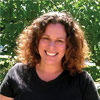cagr2014 Conference Speakers
Rachel Baum
Adjunct Assistant Professor, Jewish Studies & Hebrew Studies, University of Wisconsin-Milwaukee
Dr. Rachel N. Baum is Adjunct Assistant Professor of Jewish Studies at the University of Wisconsin-Milwaukee, where she also coordinates the major. She has published a number of essays, including chapters in Between Hope and Despair: Pedagogy and the Remembrance of Historical Trauma, edited by Roger I. Simon, Sharon Rosenberg and Claudia Eppert as well as After-Words: Post Holocaust Struggles with Forgiveness, Reconciliation, and Justice, edited by David Patterson, and John K. Roth. Baum is engaged in issues of media and memory as both a teacher and as a researcher, taking students on virtual field trips to the Holocaust exhibit in Second Life and teaching them to create digital stories about their Holocaust learning. She is currently researching how new technologies are reshaping Holocaust memory.
Twitter handle: @RNBaum
 Celina Biniaz
Celina Biniaz
Auschwitz Survivor, Holocaust Educator
A Polish-born Jewish survivor of the Holocaust, Celina Biniaz has been an advocate of reconciliation and tolerance through the sharing of her experiences. A survivor of Auschwitz and Plaszow, Biniaz was also the youngest employee in Oskar Schindler's enamelware factory. Her testimony is in the Visual History Archive at the USC Shoah Foundation and she has a long-standing affiliation with the Institute.
Johanna Blakley
Managing Director and Director of Research of the Norman Lear Center, University of Southern California Annenberg School for Communication and Journalism
As the Managing Director and Director of Research of the Norman Lear Center (a media-focused think tank at USC), Dr. Johanna Blakley explores how our entertainment interacts with our political, commercial, and social habits. She has worked across a huge variety of media platforms — producing for the web on a large scale, conducting gaming research, coordinating events for film festivals and executing consumer research on entertainment politics. Drawing on her vast body of experience, she also lectures at USC and helped develop their master's program in Public Diplomacy. Currently, Blakley is the principal investigator on a research project that measures the impact of feature films and documentaries on the attitudes, knowledge, and behavior of the viewers.
Twitter Handle: @Mojojohanna
 Ethel Brooks
Ethel Brooks
Associate Professor of Women's and Gender Studies and Sociology, Rutgers School of Arts and Sciences
Dr. Ethel Brooks is an Associate Professor in the Department of Women's and Gender Studies and Sociology at Rutgers University. Her book, Unraveling the Garment Industry: Transnational Organizing and Women's Work, received the award for Outstanding Book for 2010 from the Society for the Study of Social Problems. In 2011, Professor Brooks was awarded the Fulbright - University of the Arts, London Distinguished Chair Award. She is currently working on two book projects focusing on political economy and cultural production and the increasing violence against Romani (Gypsy) citizens worldwide. Her op-eds on the expulsion of the Romani people in various European countries have recently appeared in The Guardian.
Twitter Handle: @EthelBrooks2
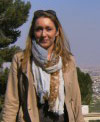 Christina Isabel Brüning
Christina Isabel Brüning
Assisstant Professor of Political Science and History, Pedagogical Institute, Freiburg
Christina Isabel Brüning began her teaching career at the Free University in Berlin in 2009. She joined the school as a research associate with positions in both the Friedrich-Meinecke Institute of History and the Institute of English Philology. Since 2013, she has been working as a research assistant at the Freiburg University of Education in the Institute of Political Science and History.
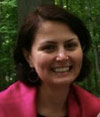 Michelle Caswell
Michelle Caswell
Assistant Professor, Department of Information Studies, University of California, Los Angeles
Dr. Michelle Caswell is an Assistant Professor in the Department of Information Studies at the University of California, Los Angeles, where she is an affiliated faculty member with the Center for Southeast Asian Studies. She takes a social justice and pluralist approach to archival education, encouraging students to make connections between records creation, archival management, power, and cultural diversity. She is the co-founder of the South Asian American Digital Archive (SAADA), an online repository that documents and provides access to the diverse stories of South Asian Americans. SAADA was profiled by The New York Times in August 2012.
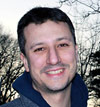 Paris Papamichos Chronakis
Paris Papamichos Chronakis
Lecturer in History, University of Illinois at Chicago
Dr. Paris Papamichos Chronakis (MA Essex University; PhD University of Crete) is currently a Lecturer in History at the University of Illinois at Chicago having previously taught at the University of Thessaly, Greece, and at Brown University. His research focuses on interethnic relations in the Eastern Mediterranean during the transition period from empire to nation-state as well as on the history and memory of the Holocaust in Greece. Paris was scientific project coordinator of the Database of Greek Jewish Holocaust Survivors' Testimonies (2011-2014), and has organized international conferences on the Jews of Salonica and on the Eastern Mediterranean middle classes. He is co-editing and contributing to a special issue of Jewish History on the history of the Jews of Salonica to appear in December 2014.
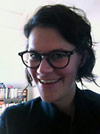 Rachel Deblinger
Rachel Deblinger
Digital Humanities Specialist, University of California, Santa Cruz
Dr. Rachel Deblinger recently completed her doctorate in History at UCLA, and is currently beginning work at UCSC as a Digital Humanities Specialist. Her dissertation, "'In a world still trembling': American Jewish philanthropy and the shaping of Holocaust survivor narratives in postwar America (1945-1953)," reveals how American Jews first came to know stories about Holocaust survivors through the efforts of American Jewish communal organizations in the postwar period.
Twitter Handle: @racheldeblinger
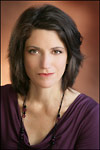 Carla Garapedian
Carla Garapedian
Documentary Filmmaker
Dr. Garapedian is a filmmaker who has been leading the Armenian Film Foundation’s project to digitize a rare collection of Armenian Genocide eyewitness testimonies filmed between 1972 and 2005 by the late J. Michael Hagopian. This collection will be available to view in 2015 within USC Shoah Foundation’s Visual History Archive. She was also director of Screamers, a documentary about genocide in the last century, featuring the band System of a Down. The critically acclaimed film won the coveted Audience Award at the 2006 American Film Institute Festival. Garapedian was also the only American to anchor BBC World News. The Pomegranate Foundation, which Garapedian established in 2009, is dedicated to genocide education and the arts.
Twitter Handle: @CarlaGarapedian
 Edyta Gawron
Edyta Gawron
Assistant Professor of Jewish Studies, Jagiellonian University and Head of the Centre for the Study of the History and Culture of Krakow Jews, Jagiellonian University
Dr. Edyta Gawron is an alumna of the Postdoctoral Research Scholarship at the International Institute for Holocaust Research, Yad Vashem (2006/2007) and the International Visitor Leadership Program by the US Department of State (2008). As a specialist in the 20th century history of Polish Jews, Holocaust studies and the post-Holocaust Jewish Diaspora, she cooperates with various academic institutions and museums in Poland and abroad. Dr. Gawron is a member of the Commission on the History and Culture of the Jews at the Polish Academy of Arts and Sciences, and is the president of the Board of Directors of the Galicia Jewish Heritage Institute Foundation, and an academic advisor for the Galicia Jewish Museum in Krakow. Since 2007, she has participated in the works of the core team designing the new museum in the former Schindler Factory in Krakow.
 Olga Gershenson
Olga Gershenson
Professor of Judaic and Near Eastern Studies, University of Massachusetts, Amherst
Dr. Olga Gershenson is Professor of Judaic and Near Eastern Studies at the University of Massachusetts, Amherst. She is the author of Gesher: Russian Theatre in Israel (2005) and The Phantom Holocaust: Soviet Cinema and Jewish Catastrophe (2013). She has published widely on Jewish and Israeli films, and also co-edited Ladies and Gents: Public Toilets and Gender (2009).
 Andi Gitow
Andi Gitow
Visiting Fellow, USC Shoah Foundation; Executive Producer, United Nations News and Media Division
Andi Gitow is a visiting fellow at USC Shoah Foundation. She is a two-time Emmy award-winning journalist and filmmaker who has been directing and producing broadcast features and documentaries for more than fifteen years. She specializes in the coverage of genocide and conflict, international justice, and human rights and humanitarian issues. She has interviewed hundreds of conflict survivors across the globe including in Sudan, the Democratic Republic of Congo, Rwanda, Liberia, Bosnia, Cambodia, Colombia, and the Middle East. Gitow also helps oversee documentary production and global news and media strategy for the UN. Before joining the UN, Gitow was a News Producer and Senior Producer at NBC Network News, where she produced award-winning feature stories and segments for all of NBC's news programs. Her work has also appeared on other major networks and in film festivals.
 Douglas Greenberg
Douglas Greenberg
Distinguished Professor of History, Rutgers University
Originally a scholar of American History, Dr. Douglas Greenberg has spent most of his career as a university administrator and non-profit executive. He was Associate Dean of the Faculty at Princeton, Vice President of the American Council of Learned Societies, and President and CEO of the Chicago Historical Society, before becoming President and CEO of Survivors of the Shoah Visual History Foundation. In that role, he oversaw the completion of the VHA as well as the expansion of the Foundation's mission beyond Holocaust testimony. He led the negotiations that brought the Shoah Foundation to USC, and served as the first executive director of the Institute. He became Executive Dean of the School of Arts and Sciences at Rutgers in 2008, and returned to the faculty in 2012. He teaches courses on American Legal History and Comparative Genocide. Last spring, he was the Institute Senior Fellow. Relying on the Visual History Archive, he is completing research for an electronic book entitled Memories of the Forgotten Holocaust: The Jews of Wolyn, 1900-2000.
 Wolf Gruner
Wolf Gruner
Director of the Center for Advanced Genocide Research, Shappell-Guerin Chair in Jewish Studies and Professor of History, University of Southern California
Dr. Wolf Gruner currently holds the Shappell-Guerin Chair in Jewish Studies at USC. In 2011, he was named a Senior Fellow at the USC Shoah Foundation. He has published and co-edited multiple books on the Holocaust in German and English, and has forthcoming a book on the racial segregation of the indigenous population in 19th century Bolivia in Spanish. His research focuses on Jewish forced labor, resistance to genocide and the structures of anti-Jewish policy-making in the Third Reich.
 Sofia Gruskin
Sofia Gruskin
Director of the Program on Global Health & Human Rights at the University of Southern California Institute for Global Health, Professor in the Department of Preventative Medicine at the Keck School of Medicine and Professor of Law and Preventative Medicine at the Gould School of Law at the University of Southern California
Sofia Gruskin's work has been instrumental in developing the conceptual, methodological, and empirical links between health and human rights. She is currently on the Board of Directors of the Guttmacher Institute and a member of the Core Group of Experts on Under 5 Mortality and Morbidity for the Office of the High Commissioner for Human Rights and the World Health Organization. Gruskin is Adjunct Professor of Global Health at the Harvard School of Public Health and an associate editor of The American Journal of Public Health, Global Public Health and Reproductive Health Matters.
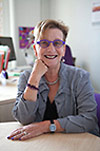 Marianne Hirsch
Marianne Hirsch
William Peterfield Trent Professor of English and Comparative Literature and Professor in the Institute for Research on Women, Gender, and Sexuality, Columbia University
Dr. Marianne Hirsch has authored and edited numerous books on writing and visual culture in post-Holocaust memory, including The Generation of Postmemory and Teaching the Representation of the Holocaust. She is a former President of the Modern Language Association and the recipient of fellowships from the Guggenheim Foundation, the ACLS, the Mary Ingraham Bunting Institute, the National Humanities Center, and the Bellagio and Bogliasco Foundations. She is one of the founders of Columbia University's Center for the Study of Social Difference, and Co-Director with Jean Howard of its new global initiative "Women Creating Change."
 Henry Jenkins
Henry Jenkins
Provost's Professor of Communication Journalism and Cinematic Arts, University of Southern California Annenberg School for Communication and Journalism
Dr. Henry Jenkins is the Provost's Professor of Communication Journalism and Cinematic Arts at USC's Annenberg School for Communication and Journalism. Henry Jenkins joined USC from the Massachusetts Institute of Technology, where he was Peter de Florez Professor in the Humanities. He directed MIT's Comparative Media Studies graduate degree program from 1993-2009, setting an innovative research agenda during a time of fundamental change in communication, journalism, and entertainment. As one of the first media scholars to chart the changing role of the audience in an environment of increasingly pervasive digital content, Jenkins has been at the forefront of understanding the effects of participatory media on society, politics and culture. His research gives key insights to the success of social-networking web sites, networked computer games, online fan communities, and other advocacy organizations and emerging news media outlets. Jenkins has also played a central role in demonstrating the importance of new media technologies in educational settings. He has worked closely with the John D. and Catherine T. MacArthur Foundation to shape a media literacy program designed to explore the effects of participatory media on young people, and reveal potential new pathways for education through emerging digital media. He is Principal Investigator on the Media Activism Participatory Politics project. His most recent books include Reading in Participatory Culture: Remixing Moby-Dick in the Literature Classroom (with Wyn Kelley, Katie Clinton, Jenna McWilliams, Ricardo Pitts-Wiley and Erin Reilly), and Spreadable Media: Creating Meaning and Value in a Networked Society (with Sam Ford and Joshua Green).
Twitter Handle: @henryjenkins
 DJ Johnson
DJ Johnson
Assistant Professor of Cinema Practice in the Media Arts + Practice Division, University of Southern California School of Cinematic Arts
DJ Johnson, MFA is a documentary filmmaker, media artist, and educator. He is a recipient of the USC Mellon Mentoring Award for his outstanding teaching and support of undergraduate students. In his prior work as a video documentarian for the USC Institute for Multimedia Literacy, DJ developed innovative techniques to document multimedia pedagogy, and scholarship. He serves on the Board of Directors of Picture Alternatives, a non-profit organization that uses creative media to promote the social value and effectiveness of alternatives to violence. With expertise in digital storytelling, documentary production and new media, DJ has developed and taught courses for educational programs internationally.
Twitter Handle: @PicAlternatives
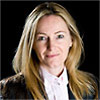 Karen Jungblut
Karen Jungblut
Director of Research and Documentation at the University of Southern California Shoah Foundation - The Institute for Visual History and Education
As the Director of Research and Documentation for the USC Shoah Foundation, Karen Jungblut oversees scholarship and research activities, as well as working with a global network of partner sites with access to the Institute's testimonies. Jungblut is also in charge of expanding the existing archive with the video testimonies of survivors of other genocides, which will provide scholars and teachers with unprecedented research and teaching opportunities.
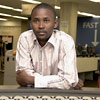 Yves Kamuronsi
Yves Kamuronsi
Director of Documentation at Kigali Memorial Center, Deputy Director at the Aegis Trust
Yves Kamuronsi is the Deputy Country Director of Aegis Trust in Rwanda. He joined the organisation in 2004 as part of the team that established the Kigali Genocide Memorial. Kamuronsi now oversees the memorial’s physical and online archive and documentation centre, known as the Genocide Archive of Rwanda. Kamuronsi is responsible for the archive’s expansion, its sustainability and manages projects and collaborations with Aegis Trust partners and donors.
Twitter Handle: @ykamuronsi
 Mukesh Kapila
Mukesh Kapila
Professor of Global Health and Humanitarian Affairs, University of Manchester, Special Representative of the Aegis Trust, Board Director of the Nonviolent Peaceforce
Dr. Mukesh Kapila, CBE is Professor of Global Health and Humanitarian Affairs at the University of Manchester, Special Representative of the Aegis Trust, and Board Director of the Nonviolent Peaceforce. He is also an Associate Fellow for the Geneva Centre for Security Policy and Adjunct Professor at the International Centre for Humanitarian Affairs, Nairobi. His memoir, Against a Tide of Evil, was nominated for the "2013 Best Non-Fiction Book" award. Professor Kapila has extensive experience in international development, humanitarian affairs, human rights, and diplomacy, with particular expertise in tackling crimes against humanity, disaster and conflict management and in global public health. He has qualifications in medicine, public health, and development from the Universities of Oxford and London. He is an extensive public and media speaker. He has served in senior roles in the British Government and United Nations, World Health Organization, International Federation of the Red Cross and Red Crescent Societies and many other bodies including chair of the Minority Rights Group International. He has been honored by Queen Elizabeth II and named a Commander of the Order of the British Empire for his international service. Other awards include the Global Citizenship Award of the Institute for Global Leadership, the "I Witness!" award for his work on human rights and a special resolution of the California State Legislature for "lifetime achievements and meritorious service."
Twitter Handle: @mukeshkapila
 Zachary Kaufman
Zachary Kaufman
United States Supreme Court Fellow/Yale Law School Visiting Fellow
Dr. Zachary D. Kaufman is a 2014-15 U.S. Supreme Court Fellow while a Visiting Fellow at Yale University (at Yale Law School, Yale’s Genocide Studies Program, and Yale School of Management’s Program on Social Enterprise) and a Visiting Researcher at Georgetown University Law Center. A graduate of Yale University (where he received his BA in Political Science and was the student body president), Oxford University (where he received his DPhil (PhD) in International Relations and was a Marshall Scholar), and Yale Law School (where he received his JD and was an Olin Fellow and the Editor-in-Chief of the Yale Law & Policy Review), Dr. Kaufman has taught in Yale University’s Department of Political Science and George Washington University’s Elliott School of International Affairs; was a visiting faculty member at New York University; practiced law at O’Melveny & Myers LLP; worked at Google; and served at the U.S. Departments of State and Justice, the UN International Criminal Tribunals for the Former Yugoslavia and for Rwanda, and the International Criminal Court. He has published two books—After Genocide and Social Entrepreneurship in the Age of Atrocities—and is the chair of Indego Africa’s Advisory Board and the founder, president, and chair of the Board of Directors of the American Friends of the Kigali Public Library. In addition, Dr. Kaufman serves on the Executive Committee of the Association of Marshall Scholars’ Board of Directors, the U.S. Holocaust Memorial Museum’s Washington Lawyers Committee, Humanity in Action's American Planning Board, and Genocide Watch's Advisory Board.
Twitter Handle: @zacharykaufman
 Viola Lasmana
Viola Lasmana
PhD Candidate, Department of English, University of Southern California
Born in Indonesia, Viola Lasmana is currently a PhD student in the English department at USC. Prior to moving to Los Angeles, Viola lived in the San Francisco Bay Area, where she received her MA from San Francisco State University and BA from the University of San Francisco. Viola works in the intersections of 19th-20th century American literature, Southeast Asian studies (especially Indonesian literature), postcolonial theories, digital humanities, remix culture and pedagogy. She is currently a Humanities, Arts, Science and Technology (HASTAC) scholar.
Twitter Handle: @viola_lasmana
 András Lénárt
András Lénárt
Researcher, 1956th Research Institute, National Széchenyi Library
Dr. András Lénárt currently works in the 1956th Research Institute at the National Széchenyi Library in Budapest, Hungary. He has worked as a Research Fellow for Otka Research, "Voices of the 20th Century," and the "Hidden Paths" project at Humbolt University in Berlin. His PhD thesis, which he defended in 2010, explores "The Image of the West in the Mentality of the 1956th Student Immigrants in Austria." He has written articles and book chapters on Hungarian immigration, fascism and the Holocaust, including his most recent: "Enemy Detected: Criminal Investigation against Arrow Cross members in the 1960s" (in State Security Service and the Right Wing).
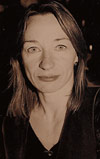 Peg LeVine
Peg LeVine
Medical Anthropologist and Clinical Psychologist, Associate Professor, University of Melbourne
Dr. Peg LeVine is a Medical Anthropologist and Clinical Psychologist who specializes in trauma-torture recovery. As an associate professor at the University of Melbourne (Global and Population Health), her fieldwork spans Asia. Recent projects in Cambodia, Lao PDR and Nepal involve ritual protection for those surviving the Cambodian genocide, sex-trafficking, land mine accidents and detention by asylum seekers. Peg was the first woman recipient of the Shoma Morita Prize (Tokyo, 2011) and is a noted scholar-practitioner of Classic Morita Therapy. As a sculptor, Peg is moved to illustrate the taboo.
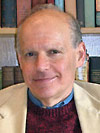 Edward Linenthal
Edward Linenthal
Editor of the Journal of American History, Professor of History and Adjunct Professor of American Studies at Indiana University, Bloomington
Dr. Edward Linenthal's research focuses on war, genocide and memory, public history, American religious history, and Holocaust studies. He has worked extensively with the National Park Service (NPS), including delivering the commemorative address at the Pearl Harbor Memorial in 1994. He has been a longtime consultant for the NPS on the interpretation of historical sites, and has served for almost a decade on the federal advisory commission for the memorial to the passengers and crew of United Flight 93 that crashed near Shanksville, PA on September 11, 2011.
 Wendy Lower
Wendy Lower
John K. Roth Professor of History, Claremont McKenna College
Dr. Wendy Lower is the John K. Roth Professor of History at Claremont McKenna College. She is a consultant for the United Holocaust Memorial Museum and the author or co-author of four books addressing Nazi activity in the Ukraine and Galicia. Her 2013 book, Hitler's Furies: German Women in the Nazi Killing Fields, was placed on the New York Times long list for the 2013 National Book Award in nonfiction.
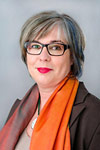 Andrea Petó
Andrea Petó
Associate Professor of Gender Studies, Central European University
Dr. Andrea Petó is an Associate Professor at the Department of Gender Studies at the Central European University in Budapest, Hungary. She has edited twelve volumes in English, six volumes in Hungarian, and two in Russian. Her works have appeared in twelve languages. She is a 2013-14 recipient of a Teaching Fellowship at the USC Shoah Foundation. Her books include: Women in Hungarian Politics 1945-1951 (Columbia University Press/East European Monographs New York, 2003) and Geschlecht, Politik und Stalinismus in Ungarn. Ein Biographie von Júlia Rajk. Studien zer Geschichte Ungarns, Bd. 12. (Gabriel Schäfer Verlag, 2007). In 2005, the President of the Hungarian Republic awarded her the Officer's Cross Order of Merit of the Republic of Hungary. She was additionally awarded the Bolyai Prize by the Hungarian Academy of Sciences in 2006.
Twitter Handle: #petoandrea
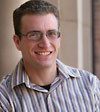 Todd Presner
Todd Presner
Chair of the Digital Humanities Program and the Sady and Ludwig Kahn Director at the Center for Jewish Studies, Professor of Germanic Languages, Comparative Literature, and Jewish Studies at the University of California, Los Angeles
Dr. Presner's research focuses on European intellectual history, the history of media, visual culture, digital humanities and cultural geography. He is the founder and director of HyperCities, a collaborative digital mapping platform that explores the layered histories of city spaces. In 2008, this platform was awarded one of the first "Digital Media and Learning" prizes by the MacArthur Foundation/HASTAC.
Twitter Handle: @ToddPresner
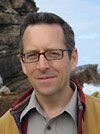 Geoffrey Robinson
Geoffrey Robinson
Professor of History, University of California, Los Angeles
Dr. Geoffrey Robinson is Professor of History at UCLA where he teaches and writes about political violence, popular resistance and human rights, primarily in Southeast Asia. His major works include: The Dark Side of Paradise: Political Violence in Bali (Cornell, 1995); East Timor 1999: Crimes Against Humanity (Elsham & Hak, 2006); and "If You Leave Us Here, We Will Die": How Genocide Was Stopped in East Timor (Princeton, 2010). Before coming to UCLA, he worked for six years at Amnesty International's Research Department in London. From 2005 through 2008, he was the PI on a British Library-funded project that aimed to digitize the archives of East Timor's truth commission (CAVR). He is currently writing a book about the mass killings and incarceration of up to one million people following a 1965 military coup in Indonesia.
 Amy Rothschild
Amy Rothschild
PhD Candidate, Department of Anthropology at the University of California, San Diego
Amy Rothschild is a PhD Candidate in the Department of Anthropology at the University of California, San Diego. She also holds a JD (2002) from Yale Law School and a BA in political science from the University of Pennsylvania (1998). Her research on remembrance of the violence of the Indonesian occupation is based on three and a half years of work and research in Timor beginning in 2002, when she worked at Timor-Leste's Truth Commission as a human rights lawyer. Her fieldwork in Timor in 2011-2012 was funded by grant from the Wenner-Gren Foundation and the UC Asia-Pacific Rim Research Center; in 2013 she was awarded a UCSD President's Dissertation Writing Fellowship, and in 2014 she was awarded a Charlotte Newcombe Doctoral Dissertation Fellowship, a Dan David Prize for studies in History & Memory and a University of California Institute on Global Conflict and Cooperation (IGCC) Dissertation Fellowship. Her dissertation is tentatively titled "Victims and Veterans: Memory, Human Rights and Nationalism in Post-Conflict Timor-Leste."
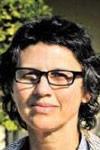 Stef Scagliola
Stef Scagliola
Researcher at Erasmus School of History, Culture, and Communication
Dr. Scagiola's research uses digital audiovisual archives with an emphasis on oral history collections. From 2006-2011, she was the coordinator of the Interview project Dutch Veterans, which consisted of more than 1000 digitally recorded life-story interviews from among a representative sample of Dutch war and military mission veterans. She currently holds a position with ESHCC, a member of the research group AXES, which is responsible for developing a training program for academics to acquire the digital skills to search and use audiovisual archives for educational and research purposes.
 Roy Schwartzman
Roy Schwartzman
Professor of Communication Studies, University of North Carolina at Greensboro
Dr. Schwartzman is Professor of Communication Studies at the University of North Carolina at Greensboro. In addition to being a USC Shoah Foundation Institute Fellow, he has held a Holocaust Educational Foundation Fellowship at the Northwestern University Institute on the Holocaust and Jewish Civilization as well as served on the Board of Directors of the Midwest Center for Holocaust Education. His research interests include the co-optation of science to justify racism and anti-Semitism, Nazi and other anti-Semitic propaganda, the rhetorical construction of risk, and persuasion.
 Jeffrey Shandler
Jeffrey Shandler
Professor, Department of Jewish Studies, Rutgers University
Dr. Shandler is a cultural historian whose work focuses on issues of media and memory in Jewish life from the late 19th century to the present, especially in Europe and North America. His books include While America Watches: Televising the Holocaust and Shtetl: A Vernacular Intellectual History. Among other titles, Dr. Shandler is the editor of Awakening Lives: Autobiographies of Jewish Youth in Poland before the Holocaust and Anne Frank Unbound: Media, Imagination, Memory.
 David Shneer
David Shneer
Professor of History and Religious Studies and Louis P. Singer Endowed Chair in Jewish History, University of Colorado at Boulder
Dr. Shneer's research focuses on 20th century European, Russian and Jewish history and culture. His newest book, Through Soviet Jewish Eyes: Photography, War, and the Holocaust (Rutgers University Press, 2011), finalist for the National Jewish Book Award and winner of the 2013 Association for Jewish Studies Jordan Schnitzer Prize, looks at the lives and works of two dozen Soviet Jewish World War II military photographers to examine what kinds of photographs they took when they encountered evidence of Nazi genocide on the Eastern Front. His new project, Not On Their Last Road, examines Yiddish musical culture's role in the clash between fascism and Communism through the life and work of Lin Jaldatu, a Dutch-Jewish Yiddish-singing cabaret singer. Shneer has recently been named editor-in-chief of East European Jewish Affairs, an interdisciplinary journal focusing on the position and prospects of Jews in the former Soviet Union and the countries of East-Central Europe. Shneer is also co-founder of Jewish Mosaic, the first national Jewish LGBT organization, and was education director of Congregation Sha'ar Zahav, the LGBT outreach synagogue of the San Francisco Bay Area, from 1997 through 2001.
 Stephen D. Smith
Stephen D. Smith
Executive Director, University of Southern California Shoah Foundation - The Institute for Visual History and Education
Dr. Stephen D. Smith, Executive Director of the USC Shoah Foundation, is also the founder of the UK Holocaust Centre in Nottinghamshire, England, and co-founder of the Aegis Trust for the prevention of crimes against humanity and genocide. He was the inaugural Chairman of the Holocaust Memorial Day Trust, which runs the National Holocaust Memorial Day in the United Kingdom. In 2013, Smith was named the inaugural UNESCO Chair of Genocide Education, in which capacity he will collaborate with genocide researchers and educators around the world to develop educator training and multidisciplinary programs that foster learning about the causes and effects of mass violence. Smith is the executive producer of Kwibuka 20, the 20th anniversary commemoration of the Rwandan Genocide. He is currently a delegate of the International Holocaust Remembrance Alliance. He is also project director responsible for the creation of the Kigali Genocide Memorial Centre in Rwanda and a trustee of the South Africa Holocaust and Genocide Foundation.
Twitter Handle: @StephensTweets
 Francesco Spagnolo
Francesco Spagnolo
Curator of The Magnes Collection of Jewish Art and Life, and Lecturer in the Department of Music at the University of California, Berkeley
Dr. Spagnolo's research focuses on Jewish studies, music and digital media. He is the Curator of the Magnes Collection of Jewish Art and Life and a Lecturer in the Department of Music at the University of California, Berkeley, as well as a host for the cultural programs of the Italian National Radio (RAI) in Rome. In 1995-1997, Dr. Spagnolo coordinated the activities of Yuval France, a center for the study of Jewish Music at the Alliance Israélite Universelle in Paris. Upon returning to Italy in 1997, he established "Yuval Italia," the first-ever Jewish music archive in Italy.
Twitter Handle: @spagnoloacht
 Kori Street
Kori Street
Director of Education, University of Southern California Shoah Foundation - The Institute for Visual History and Education
Dr. Kori Street came to the Shoah Foundation Institute in 2011 from Mount Royal University, where she was an Associate Professor and served as Chair of Entrepreneurship, Nonprofit Studies, International Business and Aviation in the Bissett School of Business. Her current research interests include the scholarship of teaching and learning, the Canadian home front in the First World War, and the Holocaust. She completed a major web-based project with a colleague in the Department of Humanities on the "Black Donnellys" with the Great Unsolved Mysteries in Canadian History group. The website engages students in the study of history using inquiry-based learning models and won the MERLOT Award for innovation in 2008 and the Pierre Berton Award in 2009. Dr. Street's current work is focused on the preservation and educational use of Holocaust survivor testimonies. This focus has also resulted in work with national and international committees on Holocaust education, remembrance and research as well as an examination of Holocaust imagery in the Harry Potter books and films.
Twitter Handle: @KoriStreet
 Viviane Teitelbaum
Viviane Teitelbaum
Chair of the Committee on Environment and Energy, Brussels Parliament
Since 2004, Viviane Teitelbaum Hirsch has been a member of the Brussels Parliament, where she chaired the Committee on Equal Opportunity Between Men and Women, and now chairs the Committee on Environment and Energy, as well as being the Deputy for the Mayor of Ixelles. Since 2012 she has been the President of the European Women's Lobby, and the President of the French Council of Women in Belgium since 2010. She is a past president of the Coordination Committee of Jewish Organizations in Belgium (CCOJB). From 1996-1999, Teitelbaum Hirsch worked as the Coordinator and Interviewer in Belgium for the Survivors of the Shoah Visual History Foundation. She has published nine books, with topics including Antisemitism in Belgium, Hidden Children during World War II, looted assets and property, and feminism, among others.
 Yannick Tona
Yannick Tona
CEO, Global Institute for Youth and Global Youth Initiative, Texas Christian University
A survivor of the 1994 Tutsi Genocide in Rwanda, Yannick Tona is an advocate for raising awareness and action against genocide and discrimination. He is also a youth advocate, former Aegis Trust Youth Ambassador and current Youth Ambassador for Harmony, an honor bestowed on him by the Australian Goverment in 2010. He is founder and CEO of Global Institute for Youth, and CEO of the Global Youth Initiative at Texas Christian University.
Twitter Handle: @yannicktona
 Christa Whitney
Christa Whitney
Director, Yiddish Book Center's Wexler Oral History Project
Christa Whitney is the director of the Yiddish Book Center's Wexler Oral History Project, a growing collection of more than 450 in-depth video interviews with people of all ages and backgrounds. The Project provides full-length oral histories and curated excerpts freely available online to all who seek a fuller understanding of the Jewish past, present and future. A native of Northern California, Christa discovered Yiddish while studying comparative literature at Smith College. She is an alumna of the Yiddish Book Center's Steiner Summer Yiddish Program and also did a year-long fellowship at the Center, where she was instrumental in establishing the Wexler Oral History Project. She also studied Yiddish at the Vilnius Yiddish Institute.
Twitter Handle: @YiddishStories
 Aya Yadlin-Segal
Aya Yadlin-Segal
PhD Candidate, Department of Communication, Texas A&M University
Aya Yadlin-Segal is a PhD student in the Department of Communication at Texas A&M University. Her research interests include (but are not limited to) representations of 'Others' in mass media, identity construction in online environments, and the flow of culture in a global mediascape.
Twitter Handle: @Twitting_Ayonet
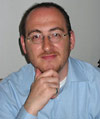 Mark Zaurov
Mark Zaurov
PhD Candidate, Institute of German Sign Language and Communication of the Deaf, Department of Language, Literature and Media, University of Hamburg
Mark Zaurov is an independent scholar and a doctoral candidate at the University of Hamburg. He has won fellowships with the Charles H. Revson Foundation and the Center for Advanced Holocaust Studies (United States Holocaust Memorial Museum), among others. Zaurov's research interests include Deaf Jews in Art, Politics and Sciences, and the Deaf Holocaust. He founded the Association of Deaf Jews and descendants in Germany, the only association following in the footsteps of the Jewish Deaf Association founded in 1896 and destroyed in Nazi Germany in 1937. Under his presidency and in collaboration with the Berlin Senate for Cultural Affairs, he initiated a free-standing digital memorial board in the heart of Berlin commemorating the predecessor association in German and International Sign Languages. He is currently working on the production of education materials about the Deaf Holocaust, Deaf Jews and Deaf Nazis in the NS-era in German Sign Language. He has published books about Deaf Jews, including Gehörlose Juden - eine doppelte kulturelle Minderheit (Deaf Jews - a double cultural minority), and about the fate of Deaf persons in Nazi Germany, including The Deaf Holocaust: Overcoming the Past, Determining its Consequences and Finding Solutions for the Present.
Twitter Handle: @MarkZaurov
